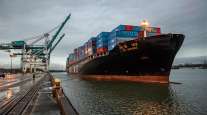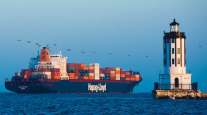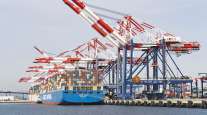Senior Reporter
Port Group Urges Caution on Possible US-China Trade War
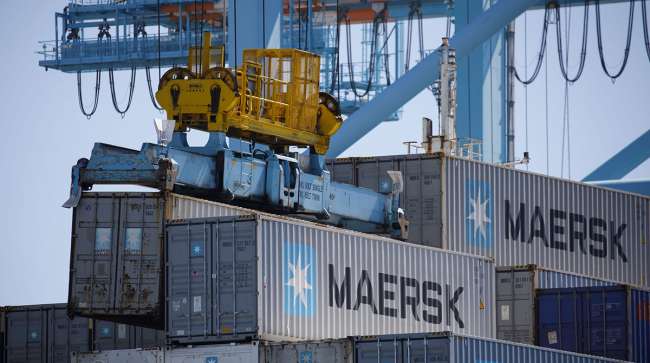
The American Association of Port Authorities has written to U.S. Trade Representative Robert Lighthizer urging the Trump administration to carefully consider the negative impact trade sanctions could have on the country’s ports and the trucking and transportation industries.
Transport Topics has obtained a copy of the letter, dated April 19, which reads in part: “While AAPA does not comment on specific trade sanctions, prior to implementing any trade remedies or sanctions, we urge you to carefully consider the negative impacts these actions would have on port and other trade-related American jobs nationwide, including the effects of likely retaliatory responses from our trading partners.”
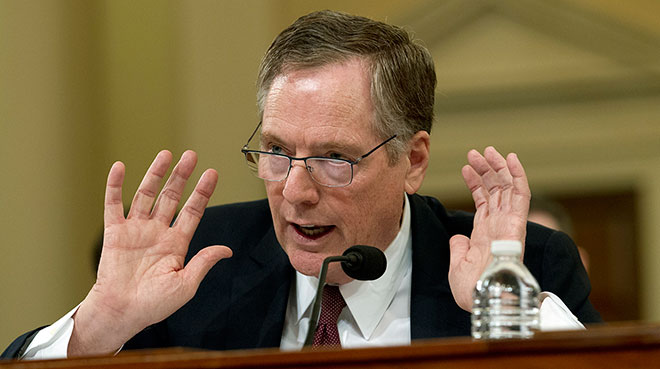
The AAPA letter urges Lighthizer to carefully consider the possible impact on ports and trucking of a trade war with China. (Jose Luis Magana/Associated Press)
“While we are supportive of free trade and we understand the president’s interest in this, we don’t want to go down into a trade war and see a lot of reciprocal responses that could harm both the exports and imports,” AAPA Vice President of Government Affairs Susan Monteverde said in an interview with TT.
“Our statistics show there are 23 million jobs in the U.S. associated with ports. Many of these jobs in ports are some of the best-paid union jobs in the United States. There are a lot of truckers that bring products from ports and back to ports. Those jobs could be disrupted if we have a big trade war and people stop wanting to export goods. I cannot tell you the number of port jobs that would be lost, the number of trucking jobs that can be lost, but those will be affected as well.”
The back and forth between Washington and Beijing began in March, when the Trump administration started a process to impose tariffs on imported steel and aluminum and then exempted most countries except for China. The Asian nation responded by announcing it would impose tariffs on 128 U.S. exports, many targeting agriculture products that could disproportionately hit American farmers. China is the United States’ No. 1 trading partner.
AAPA Letter to Lighthizer by Transport Topics on Scribd
“They [AAPA] talk a little bit about the ports themselves being affected, but I think they do a better job of putting it in the big context of the whole economy, not just the port sector itself,” said Paul Bingham, senior economist with the Economic Development Research Group in Los Angeles.
In its letter, AAPA pointed out that U.S. port authorities plan to spend at least $155 billion in infrastructure improvements at their facilities between 2016 and 2020. Much of the money is earmarked for installing additional cranes to load and unload cargo ships faster and more efficiently and to improve access for trucks and freight trains.
Several U.S. ports reported record 2017 freight volume levels, and at many facilities, the trend has continued through the first quarter of this year. AAPA said its 84 members are concerned that they are making these investments and improvements at a time when the country’s trading position is unstable.
“We are concerned there is some angst out there in the industry, we want to make investments, we want to have the best ports we can have, said AAPA’s Susan Monteverde. “But it is especially a problem when you have on one side the administration asking us to make private sector investments in infrastructure, but uncertainly is always a little bit of a problem for business investment. We want them to understand the harm if we go down into a trade war.”
AAPA said it has not yet received a response to its letter from USTR.


